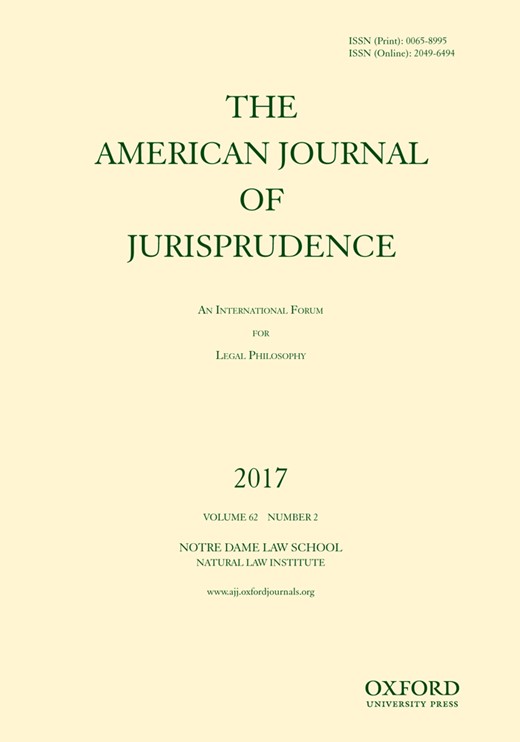-
Views
-
Cite
Cite
Dominic Burbidge, The Inherently Political Nature of Subsidiarity, The American Journal of Jurisprudence, Volume 62, Issue 2, December 2017, Pages 143–164, https://doi.org/10.1093/ajj/aux017
Close - Share Icon Share
Abstract
There is an essential contradiction in contemporary notions of subsidiarity. On the one hand, subsidiarity appeals to the ability of local bodies to engage in their own decision-making; on the other, subsidiarity employs a meta-explanation for appropriate levels of decision-making authority. In fact, therefore, the meta-explanation is assumed to provide a non-partisan basis for identifying when decision-making power should be exercised at a primary level (e.g., by representatives of the local association itself) and when at a subsidiarity level (e.g., by the state), assuming as a premise what needs to be proved as a conclusion. By making such an assumption, the criteria for who gets to decide are taken away from primary actors themselves, limiting the fullness of their political involvement. The answer lies in recognizing that any meta-explanation for the theory of subsidiarity should be fully articulated as part of the democratic process and remain open to being questioned and challenged. The different intentions that lie behind switches to decentralization leave their mark on the nature of interference in sub-state units, proving that it is false to treat a principle of subsidiarity as politically neutral and of equivalent value wherever deployed. The meta-explanation of the criteria for aggregating or disaggregating power is something engaged with by citizens who do subsidiarity as a political practice. They take forward a view of appropriate decentralization in accordance with what they think the state should be doing and what associational groups should be doing. This at times yields priority to larger organizations for coordinated pursuit of some goods over others but does not surrender definitional discretion on the criteria for aggregating power. Defining the basis on which power is made hierarchical in society is part of the practice of doing subsidiarity, rendering subsidiarity by nature inherently political.




